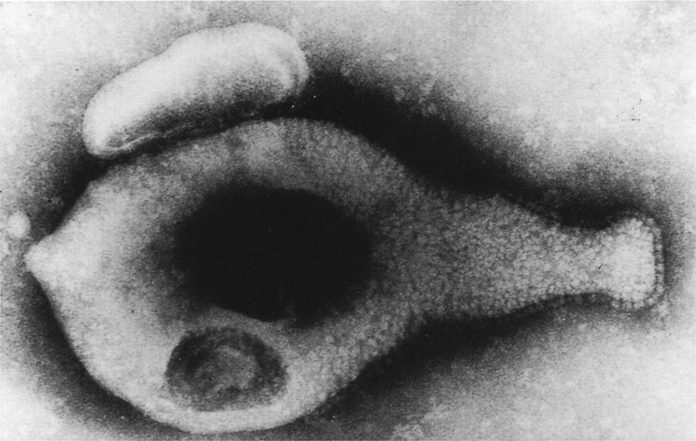
Thermo Fisher Scientific will partner with SpeeDx to gain FDA clearance of the Australian developer’s ResistancePlus™ MG molecular diagnostic for a sexually transmitted infection that is evolving into an antibiotic-resistant “superbug,” the companies said today.
The value of the partnership was not disclosed.
Upon successful validation, SpeeDx will submit ResistancePlus MG to the FDA for use with the Applied Biosystems 7500 Fast Dx Real-Time PCR System, which offers 96-well, 5-color real-time PCR for in vitro diagnostic use.
ResistancePlus MG is a multiplex qPCR test for detection of Mycoplasma genitalium and five macrolide resistance markers from male and female urine and swab specimens. The test is designed to identify both M. genitalium and mutations in the 23S rRNA gene of the bacteria that have been shown to confer resistance to the antibiotic azithromycin.
ResistancePlus MG is now marketed across Europe, Australia and New Zealand, having received a CE mark and accreditation by the Australian Therapeutic Goods Administration.
“With their reputation for scientific excellence, we are very pleased to partner with Thermo Fisher to bring this test to the U.S. market,” SpeeDx CEO Colin Denver said in a statement. “Applied Biosystems qPCR instrumentation has a long-standing reputation for quality and a wide install base across the region.”
Recent studies have shown a higher prevalence than gonorrhea for M. genitalium, which can cause symptoms such as urethritis, cervicitis, endometritis, and pelvic inflammatory disease.
SpeeDx also cited studies showing resistance has increased up to 40 percent in several countries to the macrolide antibiotics, specifically azithromycin, that are the first-line treatment for M. genitalium sexually transmitted infections.
One of those countries is the U.S., where researchers last year published a study in Journal of Clinical Microbiology showing a high prevalence of M. genitalium single infections, a lower prevalence of coinfections with other sexually transmitted organisms, and high rates of macrolide antibiotic resistance among 946 participants nationwide.
Damon Getman, Ph.D., senior principal scientist and director of scientific and medical affairs at Hologic, served as corresponding author for the study, in which researchers collected specimens that were tested for M. genitalium as well as for Chlamydia trachomatis, Neisseria gonorrhoeae, and Trichomonas vaginalis. The researchers used sequencing to assess macrolide antibiotic resistance among M. genitalium-positive subjects.
The study found significant risk factors for M. genitalium infections to include black race, younger age, non-Hispanic ethnicity, and female symptomatic status. M. genitalium prevalence rates were 16.1% for females and 17.2% for males. Female M. genitalium infections were significantly more prevalent than C. trachomatis and N. gonorrhoeae infections, while the M. genitalium infection rate in males was significantly higher than the N. gonorrhoeae and T. vaginalis infection rates. The macrolide-resistant phenotype was found in 50.8% of females and 42% of males.
Last year, the European Guideline on M. genitalium infections recommended complementing the molecular detection of M. genitalium with an assay capable of detecting macrolide resistance-associated mutations. However, in the U.S., no FDA-cleared molecular diagnostic test exists for the detection of M. genitalium.
SpeeDx and Thermo Fisher Scientific announced their collaboration at the 27th European Congress of Clinical Microbiology and Infectious Disease (ECCMID) in Vienna.
Founded in 2009, Australian-based SpeeDx specializes in molecular diagnostic solutions, focused on multiplex diagnostics for sexually transmitted infection, antibiotic resistance markers, and respiratory disease.











